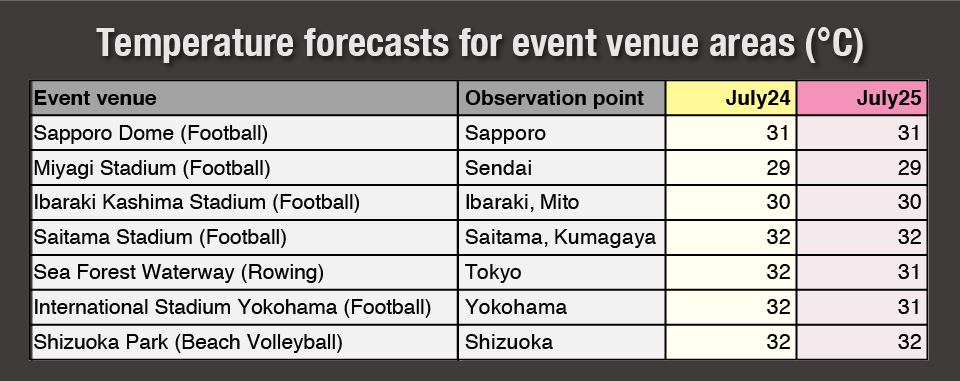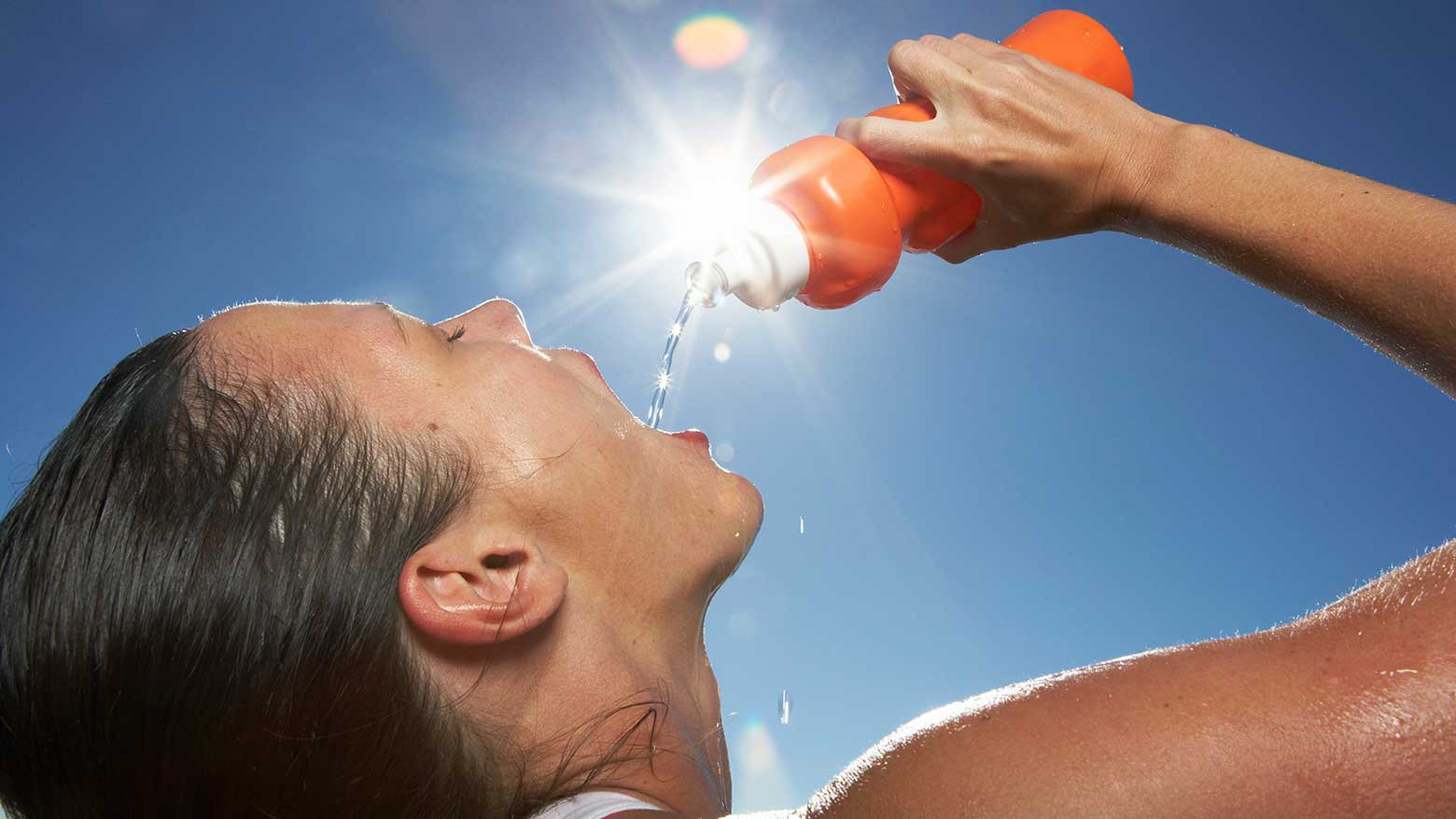Searing heat
Once Friday's opening ceremony wraps, the games will get into full swing with football, softball, beach volleyball and rowing among the events scheduled for the weekend. The events will take place in cities across Japan, and the daily high in every location will be around 30℃ (86°F).

The Japan Meteorological Agency said on July 21 that temperatures over the next week will be normal, or higher than normal, for the time of year mostly throughout the country. Some areas could even experience temperatures considerably higher than normal.
The agency recommends staying out of the sun and drinking water regularly. It also recommends checking for heat stroke alerts.
Night games
Many matches have been scheduled for cooler times of the day, but Iwabuchi Mana of Japan's women's football team says even the evenings can be oppressively hot and humid. Iwabuchi's team took on the Australian team in a friendly match on July 14. "The humidity was high on the pitch," she says. "I thought it would be OK since it was a night game, but it was tougher than I expected."
Doctors at Olympic venues
For the medical community, the Olympics will add another layer to an already challenging summer. Miura Kunihisa is vice director of Tokyo Hikifune Hospital, which is handling regular patients, coronavirus patients, outpatients with fevers, as well as conducting coronavirus vaccinations. Miura and seven members of his staff will also be at areas around Tokyo's Sea Forest Park, where the boating, canoeing, and equestrian events will be held. He says it's one of the most likely areas for heatstroke to occur, since the reflection of sunlight on the water is so strong.
Overlapping symptoms
Miura says it will be difficult to distinguish between heatstroke and coronavirus, since both conditions cause symptoms such as fever and fatigue.
In a typical summer, he can spray mist to lower the temperature and cool participants down. But such devices would increase the risk of spreading the coronavirus, so he won't use them.
He says he will have to assume there is an infection and conduct antigen tests in a negative-air-pressure tent and cool people down with ice or chilled blankets.
More information
- NHK World-Japan: Heatstroke Risk Information
- Backstories: How to beat heatstroke amid coronavirus pandemic

